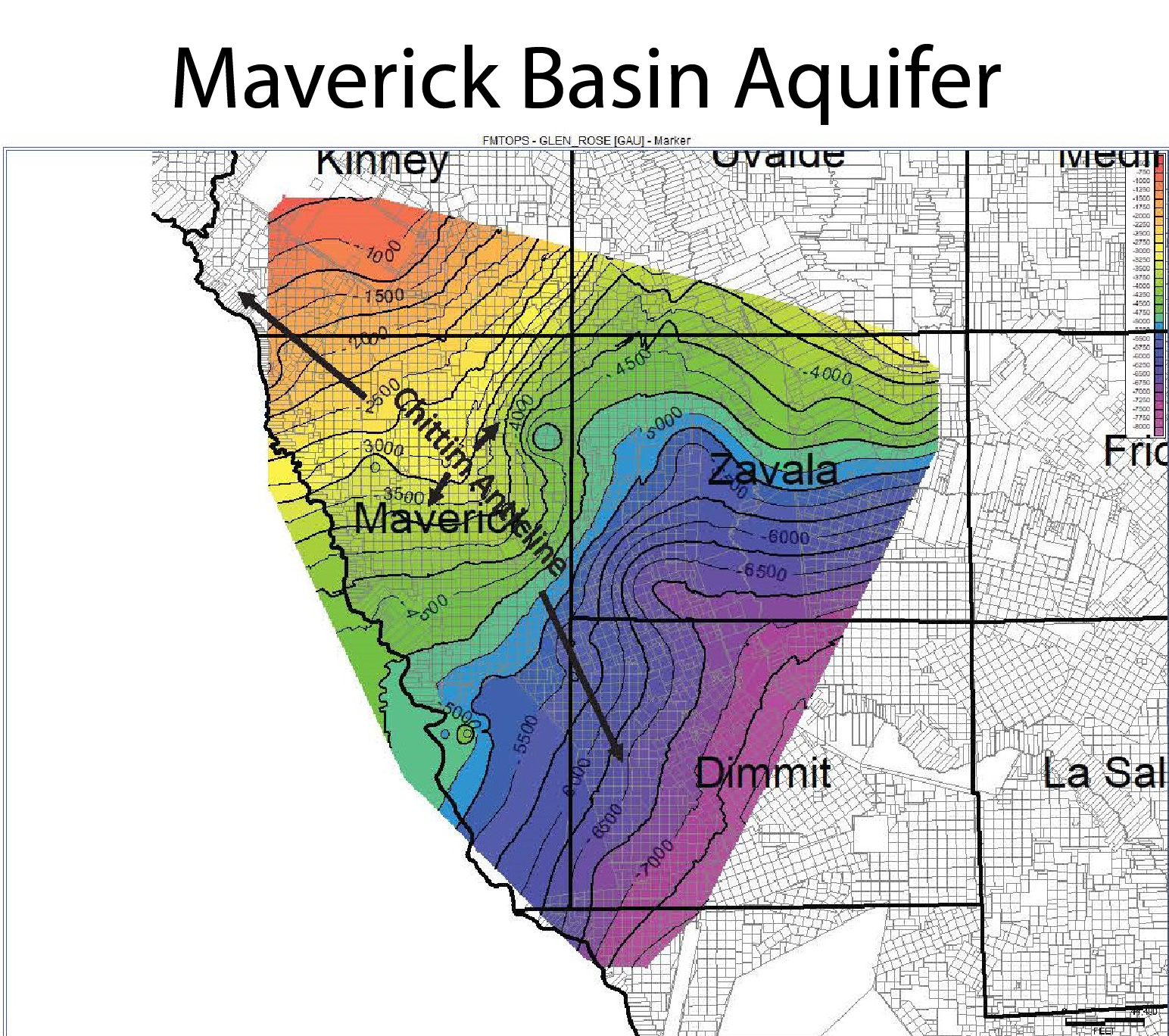Railroad Commission Identifies Freshwater Deep Aquifer
Resource Could Help Quench Parched Parts of State
November 22, 2021AUSTIN – Railroad Commission geologists have identified and mapped a deep aquifer in Texas that could yield appreciable volumes of freshwater in and around Eagle Pass, a semiarid region of the U.S.-Mexico border.
The Maverick Basin Aquifer, RRC’s working name, has been located in the Glen Rose Formation, which is more than a mile under the surface in some places. Maverick, Dimmit, and Zavala Counties have deeper water, and Kinney and Uvalde Counties are somewhat shallower. So far, the aquifer is known to be at least 3,000 square miles in area and averages about 1,000 feet thick in most places.
The aquifer’s recharge zone geologically is via karsts in the hills 50 miles west of the Rio Grande in Mexico and has no connection with the river.
A driller of a would-be oil well is working with the RRC to obtain permission to convert it to a drinking water well, which is what prompted research by RRC’s Groundwater Advisory Unit (GAU).
“It’s because of oil and gas exploration that we found this aquifer, said James Harcourt, Manager of the GAU. “The aquifer likely holds sustainable quantities of drinking water. It almost never happens that you have pristine water quality at these depths in these volumes.”
RRC’s GAU, which is more than 100 years old, reviews data from operators, academics, government agencies, and groundwater conservation districts and other sources to ensure that oil field activities and well designs are protective of fresh water. The GAU issues groundwater identification reports which must be reviewed by RRC field staff and operators before underground oil and gas engineering operations could be approved.
Data from testing the Maverick Basin Aquifer during GAU research showed future water wells could be capable of sustainably producing thousands of gallons of freshwater per day from an individual well with some wells exhibiting artesian flow.
The RRC has had the water tested by a San Antonio laboratory, and tests show it meets or exceeds federal and state drinking water standards. Most water occurring so deep under the surface of the earth is extremely salty or has other constituents, so this find, initially reported by the driller, is quite unusual.
The GAU is sharing this new water find with the Texas Water Development Board, which oversees the state’s water planning and water availability; the Board will do further research of its own.
About the Railroad Commission:
Our mission is to serve Texas by our stewardship of natural resources and the environment, our concern for personal and community safety, and our support of enhanced development and economic vitality for the benefit of Texans. The Commission has a long and proud history of service to both Texas and to the nation, including more than 100 years regulating the oil and gas industry. The Commission also has jurisdiction over alternative fuels safety, natural gas utilities, surface mining and intrastate pipelines. Established in 1891, the Railroad Commission of Texas is the oldest regulatory agency in the state. To learn more, please visit https://www.rrc.texas.gov/about-us/.





